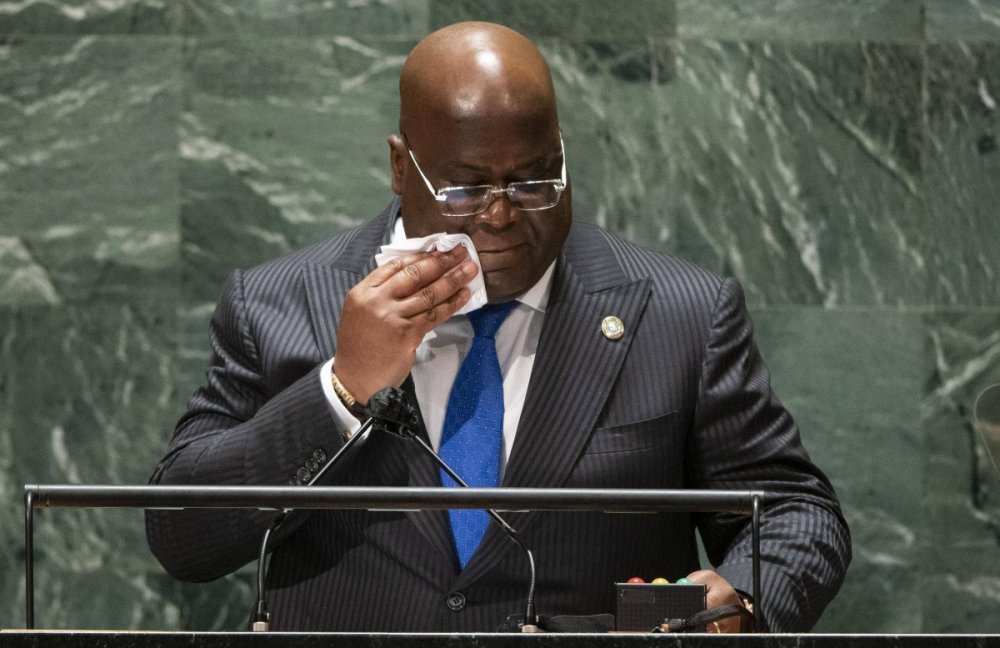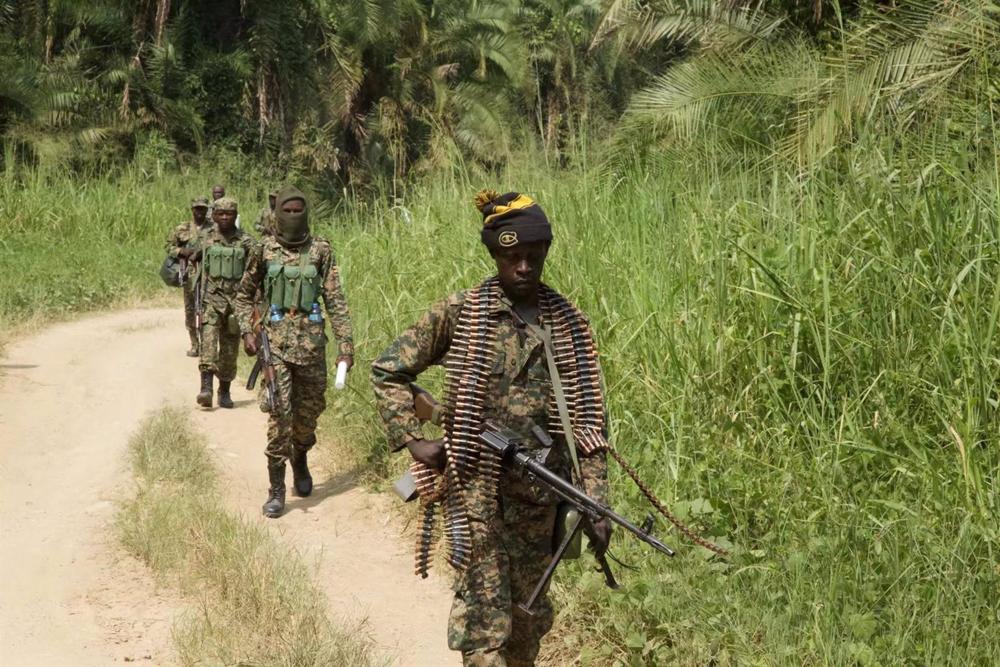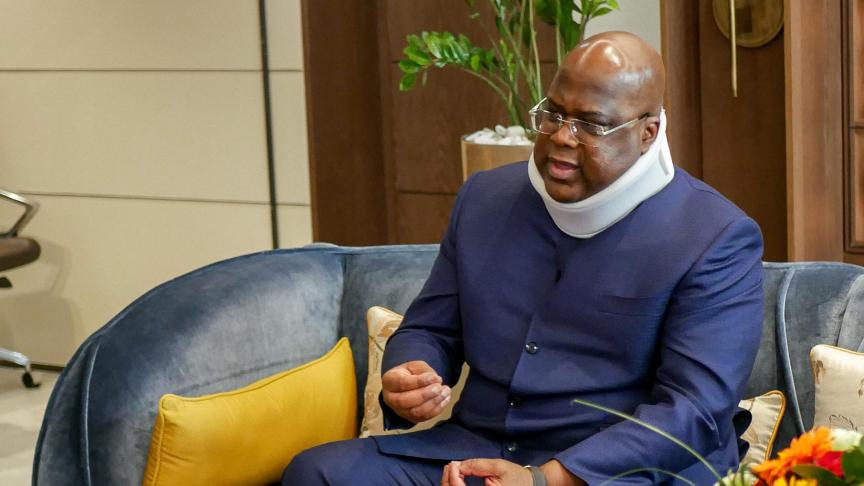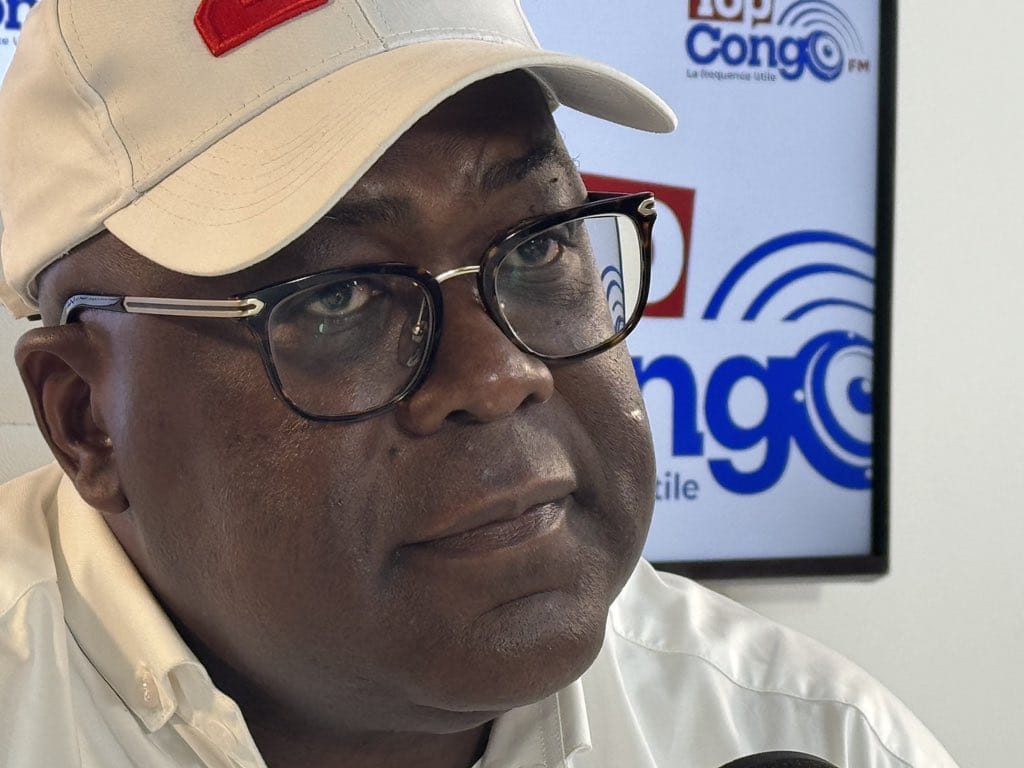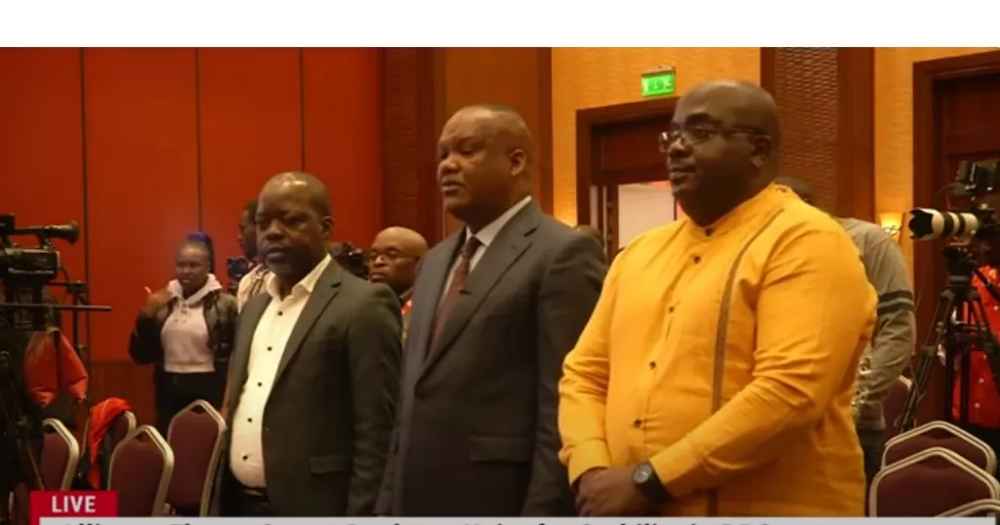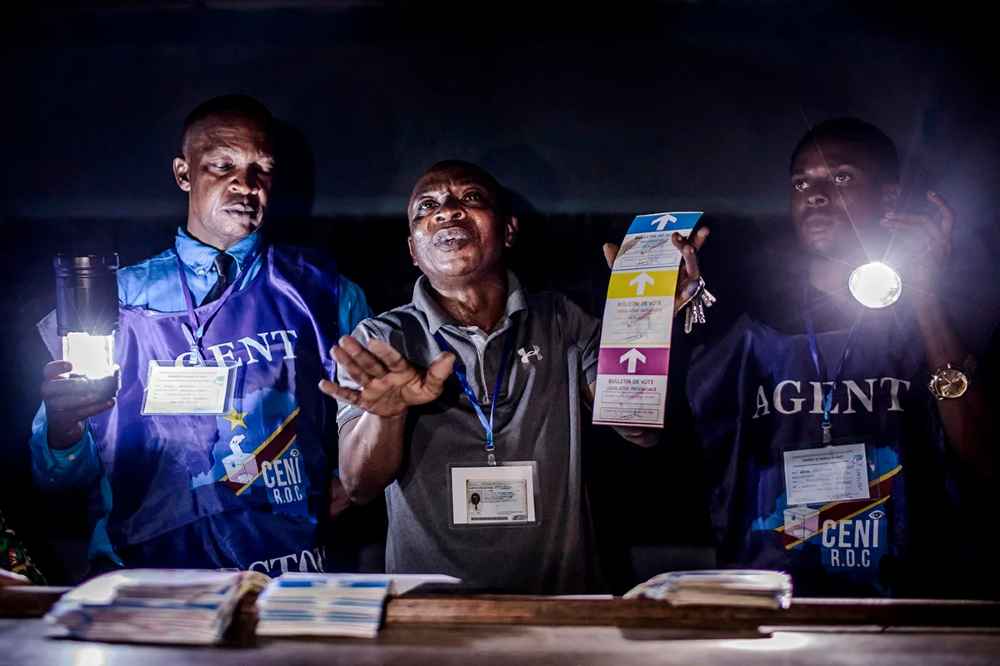Regional
DRC’s Tshisekedi wins second term. Is it the end of the story?
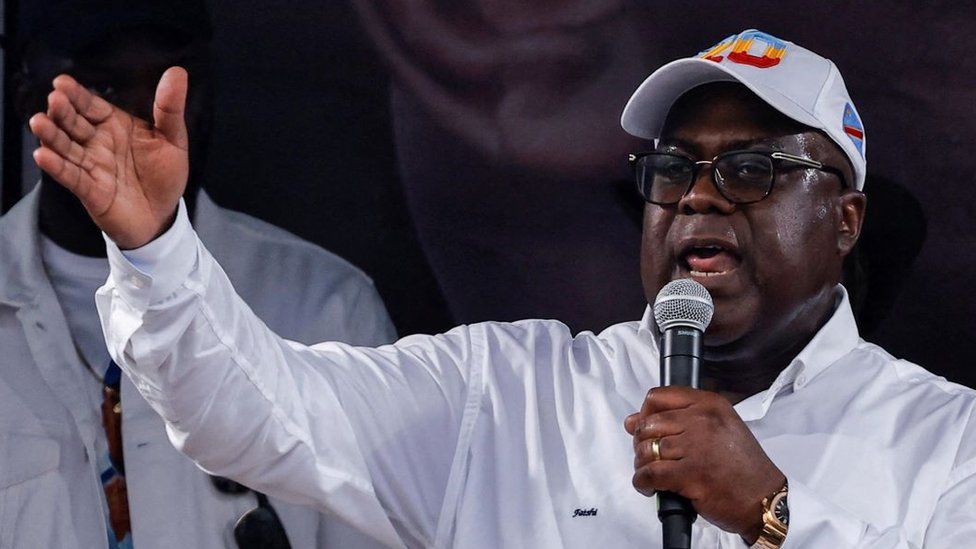
Congolese President Felix Tshisekedi, 60, who first came to power in January 2019 – after
a disputed election that many observers said he had in fact lost – on December
31, 2023, won a second term in office in a vote opposition leaders dismissed as
a “sham”.
Provisional
results from the single-round presidential ballot, declared by the country’s
national electoral commission, CENI, showed that Tshisekedi had won 73 per cent of the
vote, with the country’s Constitutional Court expected to confirm the
provisional results on January 10.
Moise
Katumbi — a wealthy businessman, football club owner and former provincial
governor — was the runner-up with about 18 per cent. Martin Fayulu — who was robbed of
the presidential election in 2018 — won about five percent of the votes.
Opposition
candidates including Fayulu and Katumbi signed a declaration, the day CENI
announced the results, rejecting what they termed a “sham” election and called
for a re-run. Fayulu told reporters that the results “are a masquerade” that
“must not be accepted.”
But
Tshisekedi was defiant, and jubilant.
Flanked
by his wife Denise and his mother, he appeared on a balcony at his campaign
headquarters in the capital, Kinshasa, to address supporters.
“I
have been re-elected president of all Congolese,” Tshisekedi told cheering
supporters.
“If a
foreign country considers these elections to be elections, there’s a problem,”
Fayulu said at a news conference in Kinshasa before the results were announced.
“It’s
a farce.”
In a
way, the East African Community (EAC) has paid little attention to the
presidential election on December 20, 2023, in the DRC, one of the regional
bloc’s newest members. DRC joined the EAC in May 2022 but the EAC did not send
election observers to DRC after Kinshasa denied them accreditation.
“This
development is due to the fact that although EAC was ready, the request to
undertake the exercise has not been granted by the relevant authorities,” the
bloc said in a statement on December 19.
On December 17, Kinshasa recalled its envoy at the EAC Headquarters in Arusha, Tanzania, Pierre Masala and its envoy in Nairobi, John Nyakeru, in protest of a meeting of Congolese rebel leaders held in Nairobi.
Kinshasa’s
relations with most regional neigbours are not at their best. Tshisekedi forced
the East African Community Regional Force (EACRF) out of the country before the
elections.
Ahead
of the departure, some of the troop contributors grew frustrated with
Kinshasa’s apparent disregard for the relative successes the mission had
brought the country.
The
EACRF mandate was to conduct joint operations with the Congolese army to defeat
armed groups, support the maintenance of law and order as well as provision of
humanitarian relief. EACRF forces recorded significant milestones, among them
being the successful withdrawal of M23 rebels to the designated cantonment
areas and creating buffer zones in areas that were once dominated by the
rebels. The regional forces were also engaged in humanitarian aid programs that
saw the provision of food, water and medical assistance to the locals.
But
all Kinshasa wanted was for the regional forces to battle the M23 rebels.
Regional leaders preferred a political solution, with dialogue as a key
element. This infuriated Tshisekedi.
Worse
still, a leaked mid-term report by the UN Group of Experts on DRC confirms that
the Congolese government played an overwhelming role in multiplying the number
of militia groups operating in eastern DRC.
The
region now counts more than 260 active armed groups – responsible for human
rights violations as well as mass killings – including the Wazalendo, Swahili
for patriots, a coalition of once-rival militias that the government cobbled
together to repel M23 rebels, and more than 2,000 Eastern European mercenaries,
many formerly with the French Foreign Legion, deployed around Goma, the capital
of North Kivu Province. Among others, Tshisekedi has also been busy supplying
the Rwandan genocidal militia group, FDLR, and Burundian soldiers, with money
and heavy weapons to fight the M23 rebels.
Kinshasa
has been spreading a narrative that the coalition of militia groups termed
“Wazalendo” are ‘nationalists’ defending their homeland from the M23 rebels
whom they call a ‘foreign’ enemy.
While
“Wazalendo” was established initially by Congolese youth allegedly responding
to Tshisekedi’s call to support the national army, the coalition was later used
as an umbrella for collaborating with several militia groups including Rwandan
genocidal militia, FDLR, to fight M23 rebels.
The UN
report also confirmed the Burundian army’s involvement in the ongoing
atrocities in eastern DRC with the Burundian army covertly joining FDLR and
other militia groups in killing the Congolese Tutsi, burning their houses and
looting their property. Over 1,000 Burundian troops have been covertly deployed
in eastern DRC since October 2023, wearing the uniform of Congolese troops and
working alongside them in the fight against M23 rebels, according to the
report.
During
his political campaign for a second term, Tshisekedi stepped out of the
expected diplomatic norm, and not only blamed Rwanda for his own failures but
uttered abuses against Rwandan President Paul Kagame.
On
December 18, Tshisekedi bragged that once re-elected, he is going to convene
parliament to authorize him to declare war on Rwanda.
Speaking
to his supporters on a final campaign stop in Kinshasa, he said: “I’ve had
enough of invasions and M23 rebels backed by Kigali. If you re-elect me and
Rwanda persists … I will request parliament and Congress to authorise a
declaration of war. We will march on Kigali. Tell Kagame those days of playing
games with Congolese leaders are over.”
Since
the resurgence of M23 in November 2021, the scale of violence in the DRC’s
volatile east has increased.
Ever since the Congolese government started working with and supporting the Rwandan genocidal militia, FDLR, formed by remnants of the perpetrators of the 1994 Genocide against the Tutsi, the objective has been to attack Rwanda so that they can continue the genocide against the Tutsi which they never completed.



